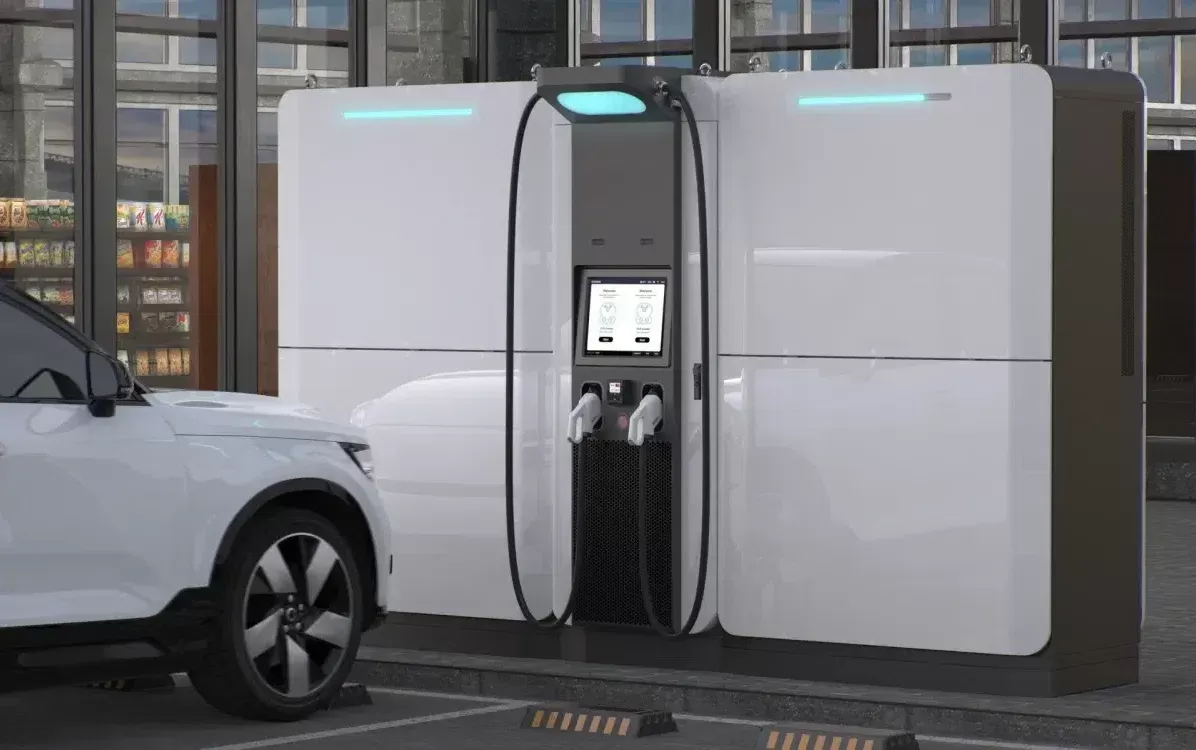Notifications

7 minutes, 31 seconds
-242 Views 0 Comments 0 Likes 0 Reviews

Introduction
As a trusted EV charger manufacturer in China, Topper Company provides reliable electric vehicle charging stations and comprehensive solutions to meet all your charging needs.
Battery Energy Storage Systems (BESS) are transforming the world of electric vehicle (EV) charging by acting as large-scale rechargeable batteries that store electricity for later use. These systems enable the storage of energy during off-peak hours, when electricity is cheaper and more abundant, and then release it during peak demand periods, thus reducing costs and easing the load on the power grid. This innovative approach is revolutionizing energy management in EV charging and contributing significantly to more sustainable practices in the sector.
Battery Storage and Its Role in EV Charging
Battery storage is critical in balancing energy supply and demand. By storing excess energy during low-demand periods and releasing it during high-demand times, BESS serves as a stabilizing force for the grid. This not only prevents overloads but also supports the integration of renewable energy sources like solar and wind into the EV charging ecosystem. By leveraging stored energy, EV charging stations can function more efficiently, making the entire process more cost-effective and sustainable.
Enhancing DC Fast Chargers with Battery Storage
Battery storage directly enhances the performance of DC Fast Chargers, which are crucial for reducing EV charging times and improving convenience. These high-power chargers require significant amounts of energy, especially during peak demand periods. Battery storage systems provide the necessary energy buffer, ensuring that these fast-charging stations can operate efficiently without overloading the grid. This ensures that charging needs are met seamlessly, even as the number of electric vehicles continues to rise.
How Battery Storage Benefits EV Charging Stations
Battery storage provides a range of advantages for EV charging infrastructure, including:
Optimized Charging Efficiency
Battery storage helps reduce electricity costs by enabling the charging of EVs during off-peak hours when electricity is cheaper. This stored energy can then be used to charge vehicles during peak hours, minimizing the need to draw power from the grid and enhancing charging efficiency.
Grid Stability and Reliability
As more renewable energy sources are integrated into the grid, the ability to manage fluctuations in energy supply becomes crucial. Battery storage helps to maintain grid stability by storing excess energy when available and releasing it when needed, ensuring a reliable power supply for EV charging.
Reduced Carbon Footprint
By using stored energy from renewable sources like solar or wind, battery storage reduces the reliance on fossil fuels, significantly lowering the carbon emissions associated with EV charging.
Cost Savings for Operators and Drivers
Battery storage reduces peak demand charges, a significant cost for charging station operators. These savings can be passed on to EV drivers in the form of lower charging prices, making electric vehicles even more affordable and attractive to potential users.
Enhanced Resilience
Battery storage provides backup power during grid outages or disruptions, ensuring that EV charging stations remain operational in emergencies, which adds to the overall resilience of the energy system.
Scalability and Flexibility
Battery storage systems are highly adaptable. They can be tailored to meet the needs of different charging stations, from small urban points to large highway hubs, providing the appropriate amount of power to support each location's unique demands.
Challenges and Considerations
Despite the numerous benefits, the integration of battery storage into EV charging systems comes with challenges:
Upfront Costs
The installation of battery storage systems can be expensive, which may deter some operators from adopting the technology. However, as battery technology advances and economies of scale take effect, these costs are expected to decrease over time.
Battery Lifespan and Performance
Over time, batteries degrade and may need to be replaced or upgraded. Maintenance and careful management of these systems are essential to ensure they operate at optimal performance.
System Integration
Integrating battery storage with existing EV charging infrastructure requires thoughtful planning. Operators need to assess energy demand, grid capacity, and the availability of renewable energy sources to ensure seamless integration. Coordination between utilities, policymakers, and charging station operators is key to achieving a successful implementation.
The Future of Battery Storage in EV Charging
Looking ahead, the future of battery storage in EV charging holds exciting possibilities:
Second-life Batteries
One innovative solution is the use of second-life batteries—those that have reached the end of their useful life in EVs but still hold enough capacity for stationary applications. By repurposing these batteries for energy storage in EV charging stations, operators can save costs and extend the lifecycle of these batteries.
Smart Grid Integration
The combination of battery storage and smart grid technologies offers the potential to optimize energy distribution and consumption. Smart grids, equipped with sensors, communication networks, and data analytics, can enable more efficient and reliable energy management, enhancing the performance of battery storage systems and improving EV charging infrastructure.
Conclusion
Battery energy storage is poised to revolutionize the EV charging landscape. By optimizing energy use, stabilizing the grid, and reducing costs, battery storage systems are making EV charging more efficient, reliable, and sustainable. As technology continues to improve, battery storage will play an increasingly important role in the global transition to electric mobility, helping to create a cleaner, greener future.
With continued advancements and innovations, such as second-life battery integration and smart grid technologies, the potential of battery storage in EV charging will only continue to grow, making it a cornerstone of future energy systems and a pivotal solution to the challenges of sustainable transportation.Know more about Google SEO Directory
China EV Chargers EV Charger Manufacturer EV Charging Solutions
